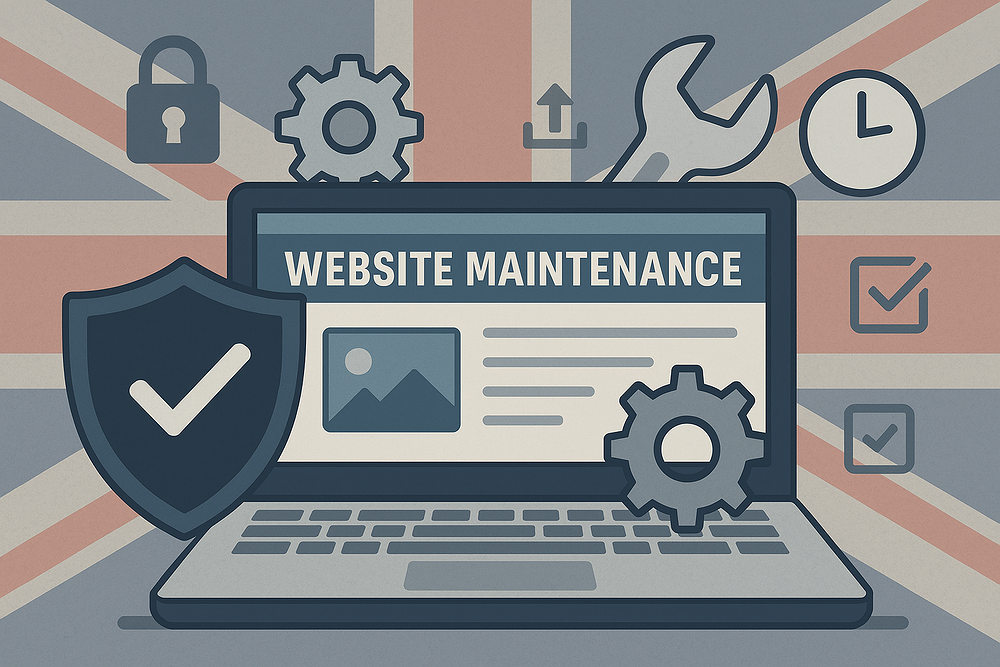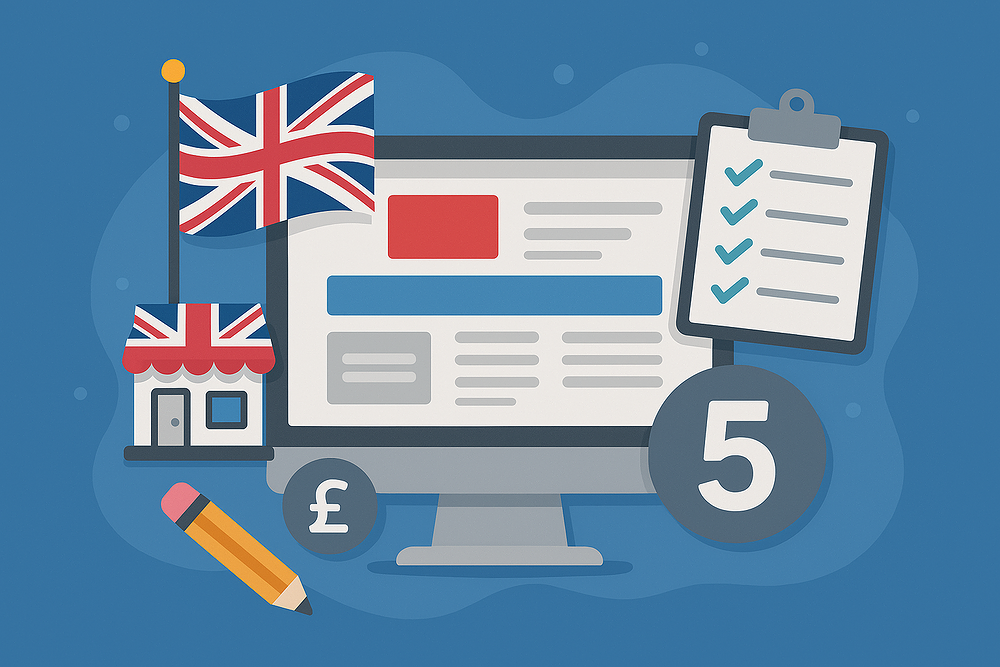How to Choose the Right CMS for Your UK Small Business: WordPress vs. Shopify vs. Custom Solutions

In today's digital landscape, having a strong online presence is crucial for UK small businesses. At the heart of this presence is your website, and powering that website is a Content Management System (CMS). Choosing the right CMS can be the difference between a website that drives growth and one that creates constant headaches.
But with so many options available—from industry giants like WordPress and Shopify to bespoke custom solutions—how do you make the right choice for your unique business needs? Let's explore the options to help you make an informed decision.
Understanding What a CMS Actually Does
Before diving into specific platforms, it's worth clarifying what a CMS actually does. At its core, a Content Management System is software that allows you to create, manage, and modify content on your website without needing technical expertise in coding.
A good CMS should enable you to:
- Update content easily without technical knowledge
- Manage your site's structure and navigation
- Upload and organise media like images and videos
- Control how your content appears on different devices
- Scale as your business grows
WordPress: The Versatile Market Leader
Strengths
WordPress powers approximately 43% of all websites globally, and for good reason. Its flexibility and extensive ecosystem make it suitable for nearly any type of business website.
Customisation: With thousands of themes and plugins, WordPress offers unparalleled flexibility. Whether you need a simple blog, a portfolio site, or a complex business website with multiple functionalities, WordPress can handle it.
SEO-Friendly: WordPress is built with solid SEO fundamentals and can be further optimised with plugins like Yoast SEO or Rank Math, giving your site the best chance to rank well in search engines.
Community Support: With millions of users worldwide, finding solutions to common problems is typically just a Google search away. This extensive community has created a wealth of tutorials, forums, and resources.
Cost-Effective: WordPress itself is free, though you'll need to pay for hosting, domain registration, and potentially premium themes or plugins. Still, the initial investment is typically lower than other options.
Limitations
Security Concerns: As the most popular CMS, WordPress is also the most targeted by hackers. Regular updates and security plugins can mitigate this risk, but it requires vigilance.
Maintenance Responsibility: You're responsible for updates, backups, and security—or hiring someone to manage these tasks.
Potential Bloat: With so many plugins available, it's easy to overload your site with unnecessary features that can slow it down.
Shopify: Purpose-Built for E-Commerce
Strengths
If your primary goal is selling products online, Shopify offers a streamlined, purpose-built solution that removes much of the complexity from setting up an e-commerce store.
All-in-One Solution: Hosting, security, and payment processing are all included, removing technical headaches.
UK-Friendly E-Commerce Features: Shopify handles VAT calculations, offers localised payment options popular in the UK, and integrates with Royal Mail and other UK shipping providers.
Reliable Performance: Shopify's infrastructure ensures your store remains fast and available even during high-traffic periods like seasonal sales.
Simplified Maintenance: Updates and security are handled by Shopify, letting you focus on your business rather than website maintenance.
Limitations
Monthly Costs: Unlike WordPress, Shopify operates on a subscription model starting from £29 per month, plus transaction fees unless you use Shopify Payments.
Less Flexibility: While Shopify excels at e-commerce, it's less versatile for other types of content or unique functionality.
Customisation Constraints: You're somewhat limited to what Shopify's theme framework and app store offer, making truly unique designs more challenging to achieve.
Custom CMS Solutions: Tailored to Your Precise Needs
Strengths
For businesses with unique requirements that off-the-shelf solutions can't meet, a custom-built CMS might be the answer.
Perfect Fit for Your Needs: A custom solution can be designed specifically around your business processes and requirements.
Competitive Advantage: Unique functionality can help differentiate your business from competitors using standard platforms.
Scalability and Future-Proofing: Custom solutions can grow with your business and adapt to changing market conditions.
Optimised Performance: Without unnecessary features, a custom CMS can deliver better performance and user experience.
Limitations
Higher Initial Investment: Custom development requires a significant upfront investment compared to pre-built platforms.
Development Timeline: Building a custom solution takes time—typically months rather than the days or weeks needed to set up WordPress or Shopify.
Ongoing Development Needs: As technologies and business requirements evolve, you'll need continued development support.
Making the Right Choice for Your UK Small Business
When choosing between WordPress, Shopify, and a custom solution, consider these key factors:
1. Your Core Business Needs
- Primarily selling products? Shopify likely makes the most sense.
- Content-focused business with occasional sales? WordPress with WooCommerce could be ideal.
- Unique business model or workflows? A custom solution might be worth the investment.
2. Available Resources
Be honest about your budget and technical capabilities. WordPress offers the lowest initial cost but requires more technical management. Shopify is more expensive monthly but reduces technical overhead. Custom solutions have the highest upfront cost but can deliver long-term value through perfect alignment with your business.
3. Growth Trajectory
Where will your business be in 3-5 years? Choose a platform that can accommodate your growth without requiring a complete rebuild.
4. Technical Support
Consider who will maintain your website. Do you have in-house technical staff? Will you need ongoing support from a development partner?
The Hybrid Approach: Best of Both Worlds
Many successful UK businesses are taking a hybrid approach—using established platforms like WordPress or Shopify as a foundation, then implementing custom elements where they add the most value.
This approach can deliver:
- Faster time to market than fully custom solutions
- Lower costs than building everything from scratch
- More flexibility than standard implementations
For example, a clothing retailer might use Shopify for their core e-commerce functionality but implement a custom product visualisation tool that differentiates them from competitors.
Finding Expert Help
Whichever direction you choose, working with experienced developers who understand both the technical aspects and the UK business landscape can be invaluable. Look for partners who:
- Have a portfolio of similar projects
- Understand UK-specific requirements (data protection, VAT, etc.)
- Can provide ongoing support
- Take time to understand your business goals, not just your technical requirements
Conclusion
There's no one-size-fits-all answer when it comes to choosing a CMS for your UK small business. WordPress offers versatility and a low entry cost, Shopify excels for straightforward e-commerce, and custom solutions deliver perfect alignment with unique business needs.
The right choice depends on your specific business requirements, available resources, and growth plans. By carefully evaluating these factors, you can select a platform that not only meets your current needs but supports your business growth for years to come.
At AppCoder, we've helped numerous UK small businesses implement the right CMS solution for their unique needs. Whether you're looking to get started with WordPress, set up a Shopify store, or explore custom development options, our team of experts can guide you through the process and ensure your online presence becomes a valuable asset for your business.
Talk to us about your next project
Our team of experts is ready to help bring your ideas to life with solutions tailored to your business.
Get in Touch

